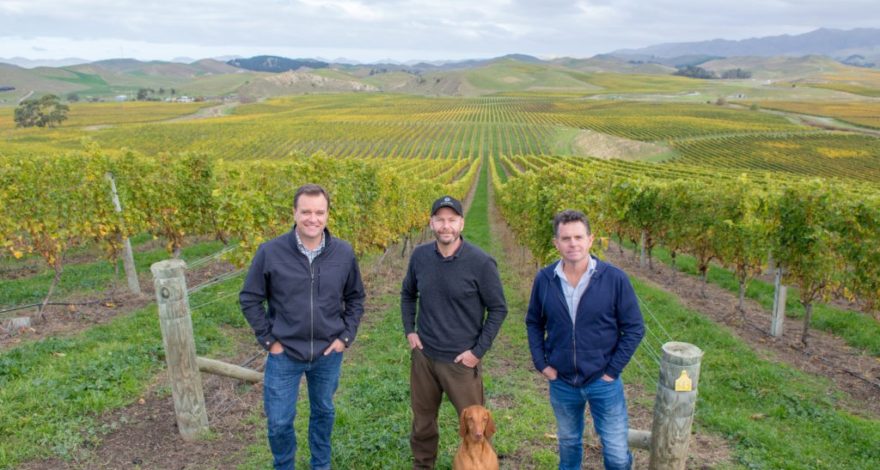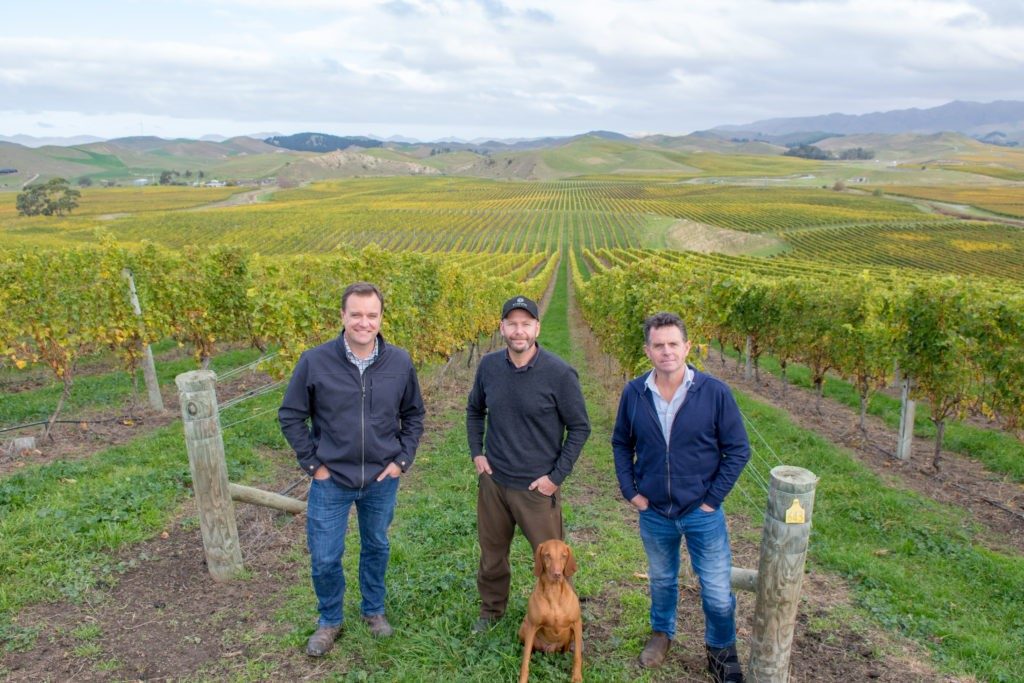Client Profile
Rapaura Springs operates from the independent 12,000 tonne Spring Creek Vintners winery situated in Spring Creek, Marlborough. The company makes their own award-winning brand wines and offer full contract winemaking facilities. Rapaura Springs are carefully managed under Sustainable Winegrowing New Zealand standards.
In 2018 the company purchased a 365-hectare vineyard (including 130 hectares of vines) in the Blind River / Tetley Brook area of the Awatere Valley, near Seddon. The vineyard is a mix of flat and undulating contoured land and draws water into storage dams from the Blind River Irrigation Scheme water. The vineyard produces fine Sauvignon Blanc, with a smaller amount of Pinot Gris – and the company intends to plant Pinot Noir and Chardonnay for vintages to come. The Awatere grapes made up “about a third” of the Rapaura Springs wine that won the Sauvignon Blanc Trophy at the International Wine and Spirits Competition in 2015.
You can take a virtual look around the vineyard here: http://bit.ly/BlindRiverVineyardTour
Project Overview
The system and equipment on the vineyard were aging, and it had not had professional review since installation, so it was considered timely to pay some closer attention to the block.
For example, the system relied upon older-style, diesel-driven pumps, which required considerable manual assistance to keep them fuelled and running. In fact, one of the drivers for reviewing the system was the labour-intensive nature of the block – which kept the vineyard team extra-busy running the irrigation. The control system was also not working, and the system struggled to keep up with the demands of the operation. Having recently purchased the block, Rapaura Springs were keen to have the system maintained and brought up to date.
Rapaura Springs’ Gus Altschwager describes the property as “one of the driest places to grow in Marlborough”; mitigated by the virtues of a creek and a large dam. Water efficiency was therefore also of considerable importance.
Solution
SWE assessed the system and equipment on the block to identify where best to focus the project efforts. Once the key issues were identified, SWE took the Rapaura Springs team to see another nearby vineyard system which had many similarities to what was proposed on their Blind River site. The client found it beneficial to see first-hand what a difference the recommendations could make. SWE outlined the recommendations and a two-phase approach was agreed upon to upgrade and repair the system and components.
In Phase 1, the system was overhauled and upgraded including such undertakings as:
- Installation of electric pump stations, and replacement of all the aging and labour-intensive diesel pumps;
- Upgrade to the pump control systems including installation of touchpads – involving electrical and automation/programming work;
- Installation of a new irrigation control system, including new cable infrastructure;
- Installation of a new mainline to and from the large storage dam;
- Performed maintenance on existing system components, including replacing media in filters, and servicing all the valve/air valves/pilots in the field; and
- Modification to existing headworks to better utilise available water from the Blind River Irrigation Scheme and storage dams, while simultaneously irrigating the vineyard effectively.
Results
The client now has a new app and web-based software that allows them to quickly and simply control such things as how long the system runs for, the flow rates and so on. This also allows the client to ‘drive’ and monitor the entire system remotely – and provides real-time insights which can assist in the client’s decision-making. The remote monitoring also enables remote assistance and service from SWE, helping to reduce unnecessary call-outs and repair and maintenance time – and therefore cost. It also informs the service team about the nature of the problem – which, for example, may mean when SWE needs to attend a call-out, the technician comes with insight into the problem (and can potentially bring additional equipment or parts in the service vehicle), again reducing time and costs.
By upgrading the irrigation control systems, this has allowed the client to better monitor flow rates and control the valves in the field. The new mainline also allowed the client to make better use of the main dam, particularly as the 2018-2019 drought took hold.
The system runs more efficiently and is tremendously less labour-intensive. SWE conservatively estimates that running the system requires at least 90% less manual intervention (than before the project was started).
The application rate is more uniform, and water efficiency has improved notably. SWE will verify the precise impact on water efficiency more closely in Phase 2 as part of the SmartAudit planned.
What the Client Said
“It’s the best crop we’ve ever seen on these vines, and the best-looking canopy. We’re very happy with the project, and the project management. Having the ability to control the system with greater accuracy and efficiency (as a result of the system enhancements done by SWE) meant we got through the 2018-2019 drought in significantly better shape.”
Gus Altschwager – General Manager of Viticulture and Winemaking, Rapaura Springs






